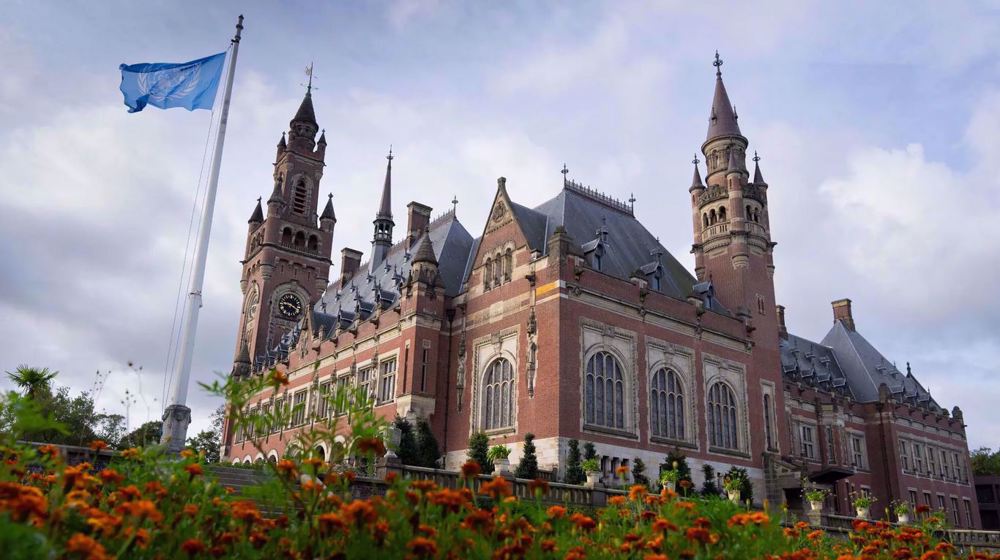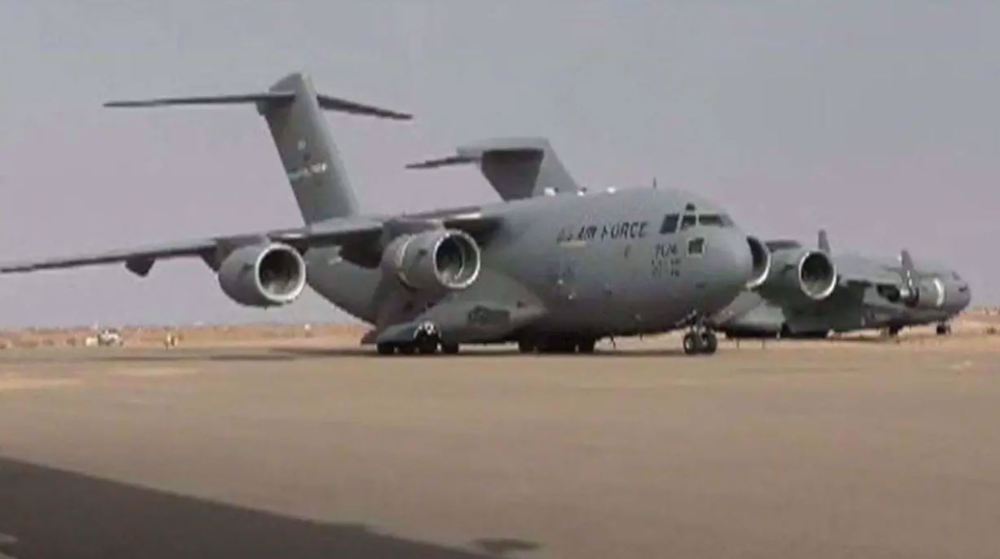Ethiopia confirms shooting at UN team in Tigray for defying checkpoints
Ethiopia’s government has justified shooting at a United Nations vehicle visiting refugees in the war-ravaged Tigray region because it failed to stop at two checkpoints, saying the country did not need a “babysitter.”
The Tuesday confirmation of the incident -- which took place as a UN security team was seeking access to the Shimelba camp for Eritrean refugees on Sunday -- came as UN spokesman Stephane Dujarric expressed concerns about the shooting, noting that there were four people in the UN team assessing roads in the area for aid deliveries.
“These are alarming reports and we are engaging at the highest level with the federal government to express our concern and avoid any such incidents in the future,” Dujarric said, adding that UN Secretary-General Antonio Guterres had discussed the matter with Ethiopian Prime Minister Abiy Ahmed on Monday.
Spokesman for the Ethiopian government’s task force for Tigray, Redwan Hussein, alleged in a press briefing that the UN team had passed through two checkpoints without stopping while driving hastily to an unauthorized area.
“When they were about to break the third one, they were shot at and detained,” he added.
“The agreement we entered with the UN was in the belief that the UN would coordinate with us but the government would call the shots,” Redwan said, emphasizing that Ethiopia was capable of helping its own people.
He also said the government would investigate any reports of atrocities or mass killings and allow independent probes if needed. “Ethiopia is being run by a strong functional government,” he added. “It doesn’t need a babysitter.”
While telling reporters in New York that talks with Ethiopian authorities on aid access were continuing, Dujarric, however, added, “Are we getting unfettered, clear, humanitarian access at this point – no.”
The development comes as the United Nations and aid agencies are pressing for safe access to Tigray, which is home to more than 5 million people and where 600,000 were dependent on food aid even before the conflict began last month.
The Ethiopian army has been battling the Tigray People’s Liberation Front (TPLF) in the northern region since November 4.
Thousands are feared dead and the UN estimates that more than 950,000 people have been displaced by the conflict, nearly 50,000 of them into neighboring Sudan. The Ethiopian government has not commented on the UN estimate.
Suspicions of Eritrean engagement in Ethiopia war
Diplomatic sources have been cited as saying that the UN team encountered uniformed Eritrean troops, according to Reuters.
Ethiopia and Eritrea signed a peace pact that ended two decades of hostilities in 2018 and now regard the TPLF as a common enemy.
“There are a few remnants of the militia or special forces not yet controlled ... kind of hooligans, outlaws,” Redwan also stated.
Meanwhile, there have been reports that the US believes Eritrean soldiers have crossed into Ethiopia to assist Addis Ababa government forces combat the northern rebels.
Both nations have denied the claims made by American and five regional diplomats.
The US assessment generates a potential policy predicament as Washington regards Ethiopia as a major ally in the volatile Horn of Africa but accuses Eritrea of severe rights abuses.
A Reuters report further noted that evidence of the Eritrean involvement cited in the American view of the month-long war “includes satellite images, intercepted communications and anecdotal reports from Tigray region.”
The report further cited a US government source as confirming Washington’s “growing consensus” on the matter, noting that it “matches accounts by some residents, refugees and TPLF leaders.”
“There doesn’t appear to be a doubt anymore. It’s being discussed by US officials on calls - that the Eritreans are in Tigray - but they aren’t saying it publicly,” added the US government source as quoted in the report.
A senior diplomat from another country concurred, saying “thousands” of Eritrean soldiers were believed to be engaged.
Eritrea’s Foreign Minister Osman Saleh Mohammed, though, emphasized on Saturday, “We are not involved. It’s propaganda.”
There have been growing concerns of the conflict spreading to regional states.
Claims by all sides are near-impossible to verify since most communications to Tigray are down, and the government tightly controls access.
Abiy won a Nobel Peace Prize last year for making peace with Eritrea, but the presence of Eritrean troops on Ethiopian soil would alarm Western allies. Ethiopia hosts the African Union, its security services work with Western allies, and its troops serve in peacekeeping missions in South Sudan and Somalia.
VIDEO | 85% of Yemeni displaced people face daily hunger crisis
US House passes bill targeting charities and pro-Palestine groups
VIDEO | Supporting Gaza genocide
Hezbollah attacks Israeli forces after Lebanese homes blown up
World leaders, states hail ICC arrest warrants for Netanyahu, Gallant
MP: US accountable for possible Israeli 'foolishness' to attack Iraq
VIDEO | Israeli policies strangle Palestinian agriculture, economy
Iran's president offers condolences to Pakistan over terrorist attack












 This makes it easy to access the Press TV website
This makes it easy to access the Press TV website